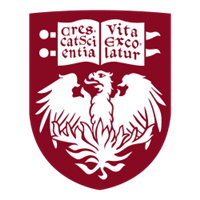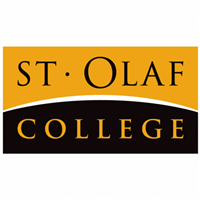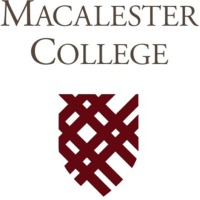What do they do?
Interpret oral or sign language, or translate written text from one language into another.
Also known as:
American Sign Language Interpreter (ASL Interpreter), Bilingual Interpreter, Braille Transcriber, Court Interpreter, Deaf Interpreter, Diplomatic Interpreter, Educational Interpreter, Freelance Translator, Interpreter, Linguist, Medical Interpreter, Paraprofessional Interpreter, Sign Language Interpreter, Spanish Interpreter, Spanish Translator, Technical Translator, Translator
-
26.1%
Change
Ranks #19 in job growth rate550Job Openings
Ranks #4 in net job growth
-
United States Military Academy
West Point, NY
-
University of Chicago
Chicago, IL
-
St Olaf College
Northfield, MN
-
Macalester College
Saint Paul, MN
-
Kenyon College
Gambier, OH
Looking for colleges that offer a specific major? Use the College Match Tool to find your best-matched schools and discover your estimated Net Price!
- Doctorate or Professional Degree (5%)
- Master's degree (16%)
- Bachelor's degree (35%)
- Associate's degree (14%)
- Some college, no degree (19%)
- High school diploma equivalent (9%)
- Less than high school diploma (2%)
Most Popular Majors that prepare Interpreters and Translators
-
#1
-
Degrees Granted
4,789
-
Female Students
3,649
-
Male Students
1,140
-
Median Starting Salary
$40,300
-
-
#2
-
Degrees Granted
1,930
-
Female Students
1,321
-
Male Students
609
-
Median Starting Salary
$44,500
-
-
#3
-
Degrees Granted
1,525
-
Female Students
1,043
-
Male Students
482
-
Median Starting Salary
$44,500
-
-
#4
-
Degrees Granted
961
-
Female Students
736
-
Male Students
225
-
Median Starting Salary
$40,300
-
-
#5
-
Degrees Granted
561
-
Female Students
280
-
Male Students
281
-
Median Starting Salary
$43,120
-
People in this career often have these skills:
- Speaking - Talking to others to convey information effectively.
- Active Listening - Giving full attention to what other people are saying, taking time to understand the points being made, asking questions as appropriate, and not interrupting at inappropriate times.
- Reading Comprehension - Understanding written sentences and paragraphs in work-related documents.
- Writing - Communicating effectively in writing as appropriate for the needs of the audience.
- Critical Thinking - Using logic and reasoning to identify the strengths and weaknesses of alternative solutions, conclusions, or approaches to problems.
- Monitoring - Monitoring/Assessing performance of yourself, other individuals, or organizations to make improvements or take corrective action.
People in this career often know a lot about:
- English Language - Knowledge of the structure and content of the English language including the meaning and spelling of words, rules of composition, and grammar.
- Foreign Language - Knowledge of the structure and content of a foreign (non-English) language including the meaning and spelling of words, rules of composition and grammar, and pronunciation.
- Customer and Personal Service - Knowledge of principles and processes for providing customer and personal services. This includes customer needs assessment, meeting quality standards for services, and evaluation of customer satisfaction.
- Education and Training - Knowledge of principles and methods for curriculum and training design, teaching and instruction for individuals and groups, and the measurement of training effects.
People in this career often have talent in:
- Oral Expression - The ability to communicate information and ideas in speaking so others will understand.
- Oral Comprehension - The ability to listen to and understand information and ideas presented through spoken words and sentences.
- Written Comprehension - The ability to read and understand information and ideas presented in writing.
- Written Expression - The ability to communicate information and ideas in writing so others will understand.
- Speech Recognition - The ability to identify and understand the speech of another person.
- Speech Clarity - The ability to speak clearly so others can understand you.
- Information Ordering - The ability to arrange things or actions in a certain order or pattern according to a specific rule or set of rules (e.g., patterns of numbers, letters, words, pictures, mathematical operations).
- Problem Sensitivity - The ability to tell when something is wrong or is likely to go wrong. It does not involve solving the problem, only recognizing that there is a problem.
- Near Vision - The ability to see details at close range (within a few feet of the observer).
People in this career often do these activities:
- Translate information for others.
- Compile technical information or documentation.
- Conduct research to inform art, designs, or other work.
- Verify accuracy of data.
- Provide educational information to the public.
- Edit written materials.
- Train others on work processes.
- Confer with clients to determine needs.
This page includes data from:

 Occupation statistics: USDOL U.S. Bureau of Labor Statistics Occupational Employment Statistics
Occupation statistics: USDOL U.S. Bureau of Labor Statistics Occupational Employment Statistics
 Videos: CareerOneStop, USDOL/ETA and the Minnesota Department of Employment & Economic Development
Videos: CareerOneStop, USDOL/ETA and the Minnesota Department of Employment & Economic Development









